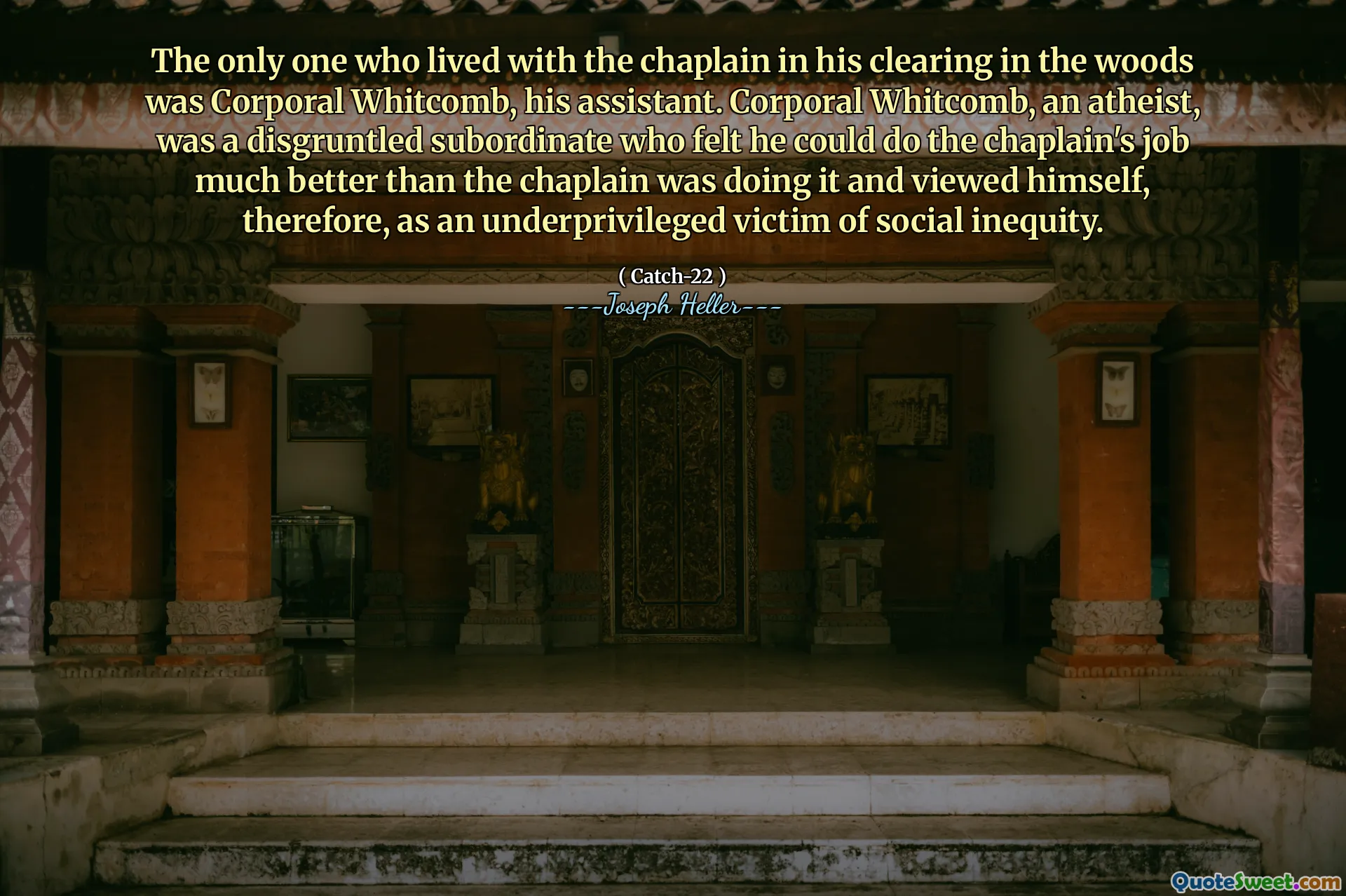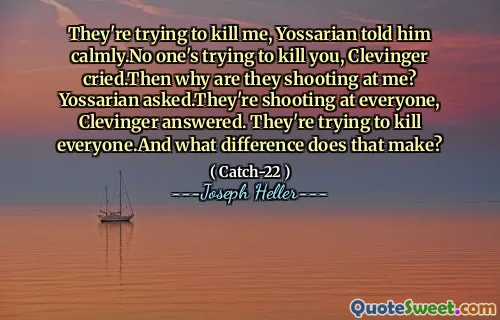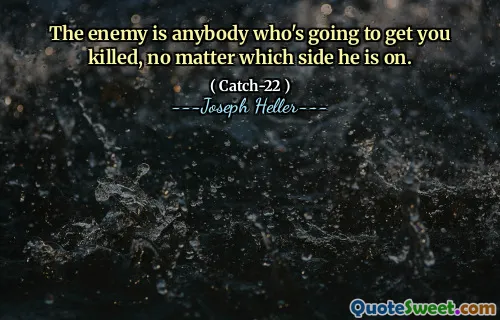
The only one who lived with the chaplain in his clearing in the woods was Corporal Whitcomb, his assistant. Corporal Whitcomb, an atheist, was a disgruntled subordinate who felt he could do the chaplain's job much better than the chaplain was doing it and viewed himself, therefore, as an underprivileged victim of social inequity.
In Joseph Heller's Catch-22, the chaplain shares his secluded woodland living space with Corporal Whitcomb, his assistant. Whitcomb, who does not believe in God, resents the chaplain and feels he could perform his duties more effectively. This discontentment leads him to perceive himself as a victim of unfair circumstances within the military hierarchy.
The dynamic between the chaplain and Whitcomb underscores themes of frustration and the struggle against perceived social injustice. Whitcomb’s feelings of inadequacy drive his cynical worldview, highlighting the complexities of authority and belief in the chaos of war.











